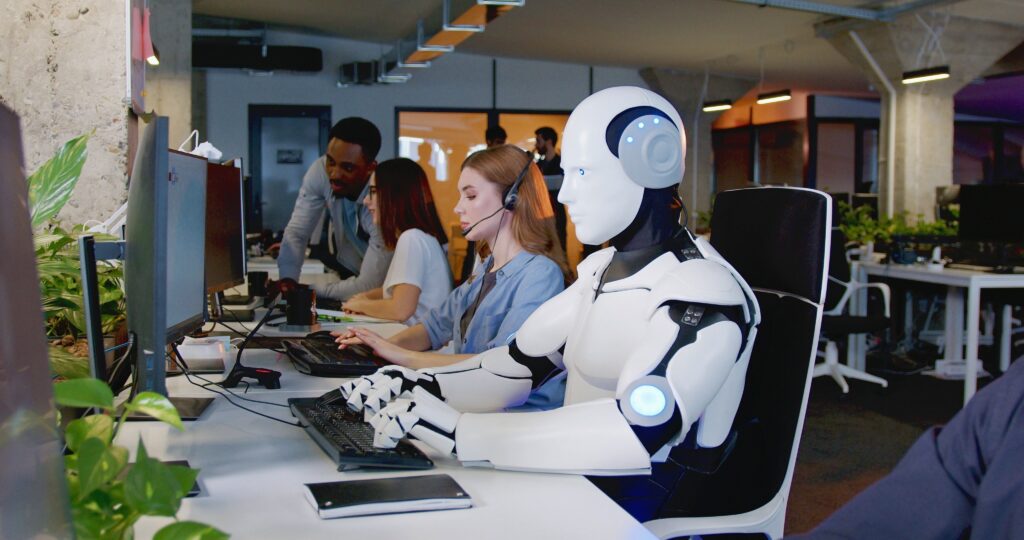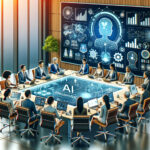The annals of history are replete with technologies that have reshaped societies, and generative AI is poised to be the next monumental shift. While AI has subtly woven itself into our daily lives, from voice assistants on our phones to smart email suggestions, it’s generative AI that’s set to amplify AI’s overall impact, potentially generating trillions in added value annually and revolutionizing the nature of work.

However, with great potential comes great responsibility. The rapid evolution of generative AI presents both unparalleled opportunities and significant challenges. Concerns have emerged about the content generative AI systems produce. Questions arise: Will they inadvertently infringe on intellectual property? Can the answers provided by these systems be trusted and explained? And will the content they generate be unbiased and fair?
The economic implications are vast. The scale of workforce transitions due to generative AI is staggering. In the coming decade, a significant portion of work activities could undergo transformation. Addressing these changes requires a multi-faceted approach, considering the perspectives of businesses, policymakers, and individuals.
For Companies and Business Leaders:
- How can businesses harness the value of generative AI while mitigating its risks?
- How will generative AI reshape the workforce in terms of required skills and occupations?
- What role do companies play in ensuring ethical deployment of this technology?
- How can businesses collaborate across industries, with governments, and society to share their generative AI experiences?

For Policymakers:
- How will the future workforce landscape change due to generative AI?
- What support mechanisms, such as retraining programs, can be established for workers?
- How can policymakers ensure that generative AI is used ethically and responsibly?
- How can policies be crafted to ensure AI development is human-centric, inclusive, and aligned with societal values?
For Individuals:
- How should individuals perceive the rise of generative AI in their daily lives and workplaces?
- How can individuals strike a balance between the conveniences offered by generative AI and its implications in their professional lives?
- How can citizens influence the decisions shaping the integration of generative AI into society?

The emergence of generative AI, especially post-2022, has been meteoric. Its rapid adoption has left both businesses and consumers in a whirlwind of excitement and uncertainty. As we stand at the cusp of this new era, the next few years promise a cascade of innovations that will redefine our understanding of AI’s role in our lives.
Generative AI holds the promise of immense economic value, especially in a world grappling with challenges like climate change. However, its potential to disrupt is equally significant, given its proficiency in language – a skill intrinsic to most knowledge-based tasks and also a tool that can be misused.
At Thia.io, we’re committed to deepening the understanding of generative AI’s potential and challenges. We believe that through collective efforts, we can harness the immense value of generative AI while safeguarding against its pitfalls. The journey has begun, and the time to act is now.

Experienced Machine Learning, Artificial Intelligence, Data Strategy, Information Technology, and Shared Services Executive
Things that matter:
• five largest ML models created at P&G, with over 10,000 pipeline runs/year
• initiated and operated THE data labeling platform and services for ML at P&G, with 300+ projects and millions of annotations on the platform
• Generative AI strategy for the Global Business Units Shared Services for the Brand, R&D, Manufacturing, Supply Chain, Master Data + eComm functions
• Product Management leadership for enterprise-wide Cloud applications combining data and AI
Education
Harvard Business School Executive Education: Artificial Intelligence (Competing in the Age of AI).
Northwestern University: Executive Strategies to Unlock Enterprise Value in Artificial Intelligence
University of Bucharest: Master of Computer Science from the Faculty of Mathematics
CIIM – Master of Business Administration (MBA) with a focus on Finance
Key Certifications:
AWS Certified Machine Learning – Specialty
Azure ML Artificial Intelligence Certification
Data Camp Certified Data Scientist (Python Track)












